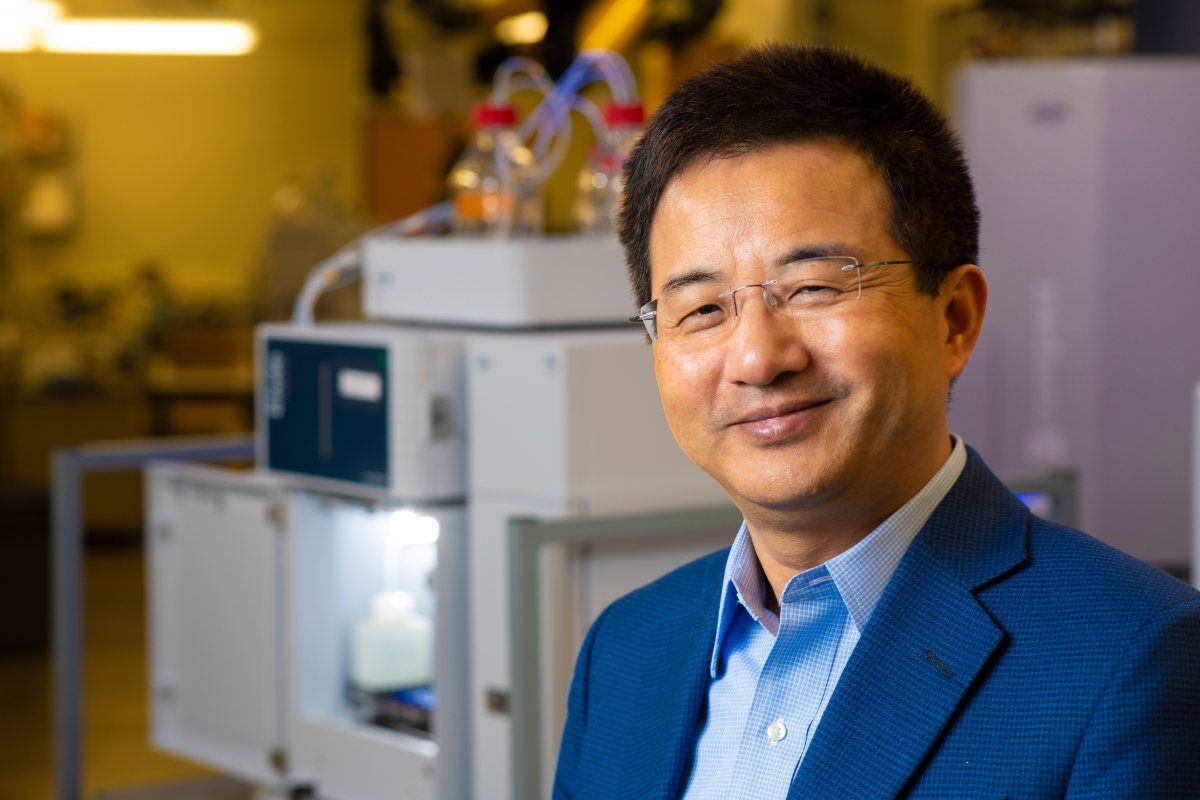
Liang Li, professor in the University of Alberta's Department of Chemistry and scientific co-director of The Metabolomics Innovation Centre, has been inducted into the Royal Society of Canada. Photo credit: John Ulan
Chemist and metabolomics expert Liang Li was inducted into the Royal Society of Canada (RSC) today, the country's oldest and most prestigious scholarly institute.
"I am really honoured to be recognized in this way," said Li, professor in the University of Alberta's Department of Chemistry and scientific co-director of The Metabolomics Innovation Centre (TMIC). "It is a credit to the current and former members of my lab, as well as our many collaborators. It is not just a recognition of myself, but of my lab's research. I feel very humbled."
Li's research is focused on developing new analytical tools and applying them for the discovery of biomarkers for many health indicators, including dementia and diabetes. His recent research has included paving the way for a saliva test designed to detect Alzhemier's disease with fellow scientist Roger Dixon, professor in the Department of Psychology. Now, Li looks forward to finding ways to scale up his research.
"It's like genomics. In the early days, only a few genes were sequenced. Now, scientists can sequence entire genomes, to analyze all genes in the human body," said Li. "We hope to take a similar approach, increasing our capacity from examining about 10 percent of metabolites to 90 percent. At the moment, metabolite analysis technology has its limitations. In the near future, we hope to analyze many more."
In addition to continuing his work on dementia and other human diseases, Li will expand his portfolio to include agriculture-more specifically, to identify biomarkers for disease in cattle, in collaboration with livestock research experts like Graham Plastow, professor at the Faculty of Agricultural, Life & Environmental Sciences. For example, dairy cattle are prone to developing some type of disease in their lifetime, which can impact their welfare as well as add cost for dairy producers.
"Understanding biomarkers is key for early detection and prevention of disease," said Li. "Biomarkers are also very useful for measuring the efficacy of treatment. It is all integrated together. The more information we have about our bodies, the better equipped we are for maintaining our health, both physically and mentally."
Congratulations, Liang.
Want to hear more about the award-winning research and teaching at the University of Alberta's Faculty of Science? Check out our recognition and awards page.